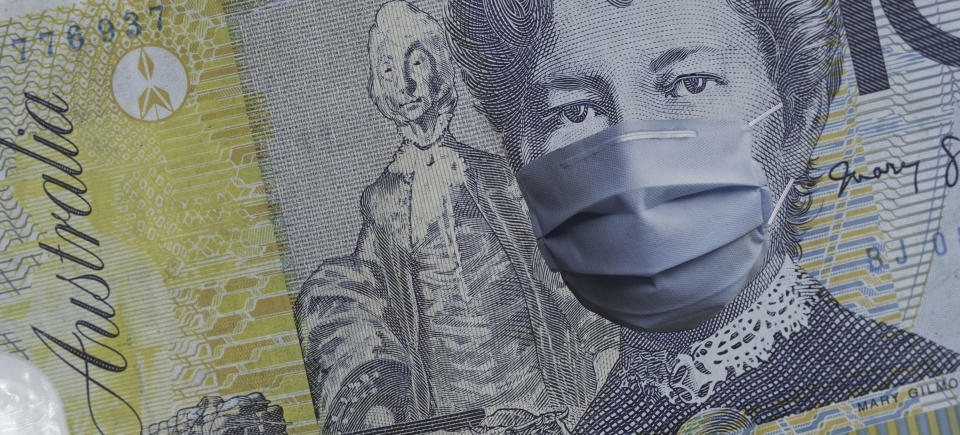$2,856: The price Aussies will pay without coronavirus vaccine

The average Australian will be thousands of dollars worse off every year if a suitable vaccine isn’t delivered within two years.
That’s according to KPMG analysis modelling the economic ramifications of continuous border closures. It found firm travel restrictions would cut $117 billion from Australia’s economy over the next decade, with the average Australian feeling a $2,856 annual sting.
The research comes as National Cabinet prepares to meet to discuss border closures. In recent days, business has come out swinging against the state border restrictions with Qantas CEO Alan Joyce calling for a “clear set of rules”.
“There seems to be no reference to the level of cases that we see. Surely, that should be the driver. Surely that should be what is determining this and the medical advice should be that determinant,” Joyce said while announcing Qantas’ devastating yearly results.
And on Friday morning, Wesfarmers CEO Rob Scott also called for more clarity.
“I think in a way the state borders are somewhat arbitrary and what we need to be doing is thinking about it in a risk-management sort of way,” Scott said.
KPMG found that if a vaccine becomes available within the next year, migration would begin to recover, boosting Australia’s population.
Without it, the consulting firm predicts the country’s population will be 1.1 million people fewer by 2029-30, a major headwind on growth.
But even with the vaccine, Australia’s Gross Domestic Product will still be $45.3 billion below pre-pandemic forecasts by 2030, with the population still falling by 420,000.
KPMG chief economist Dr Brendan Rynne said the solution is to boost student migration.
“Our modelling found that even a modest 40,000 additional skilled working-age migrants would boost GDP by up to $4.7bn by the end of the decade. Overseas students, if given a clearer pathway to residency, would be a means to achieving that end,” Rynne said.
“Extra incentives will be needed to make them choose Australia, as in the post-COVID-19 world competition for international students will be intense, so we propose an accelerated and targeted intake program.”
The Government is hopeful Australia will have a vaccine by the beginning of 2021, with Prime Minister Scott Morrison on Wednesday announcing the Government had signed a letter of intent with Oxford drug company AstraZeneca which will see the country supplied with the vaccine once it passes trials.
The AstraZeneca vaccine is considered one of the most promising vaccines currently being pursued, and will be supplied to Australians free of charge.
“However, there is no guarantee that this, or any other, vaccine will be successful, which is why we are continuing our discussions with many parties around the world while backing our own researchers at the same time to find a vaccine,” Morrison said.
“Today's a day of hope. Australia needs hope, the world needs hope.”
Currently, borders look to remain closed until July 2021, with both Qantas and the Reserve Bank of Australia (RBA) flagging that date as the earliest possible opening.
Make your money work with Yahoo Finance’s daily newsletter. Sign up here and stay on top of the latest money, news and tech news.
Follow Yahoo Finance Australia on Facebook, Twitter, Instagram and LinkedIn.



